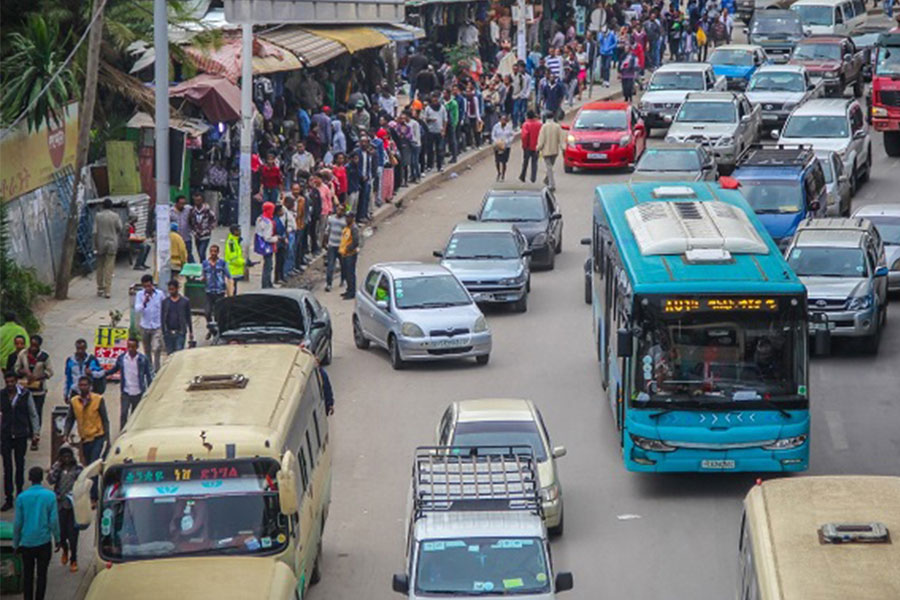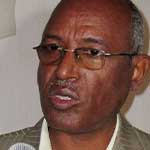
Viewpoints | Oct 16,2021
Jan 15 , 2022
By Christian Tesfaye
The purpose of the media, more than anything else, is to tell its core audience what it wants to hear. I am not just talking about politics. The media is often our window to the outside world that, even for those well-travelled, is too vast and expansive. It is the media that informs and colours our understanding of it. It often does this through narratives that may not be true per se but with which we are most likely to relate to in their occurrence.
A great story is the narrative of rags to riches, which most of us like. Growing up, adults tell us that if we study hard enough, we will succeed in life. When we grow up, we are bombarded through mainstream media of success stories. We are told that the days of the landed gentry and inherited titles and royal prerogatives are over. It is a brave new world of meritocratic societies, we are told.
"It does not matter where you are from," movies say, "what matters is where you are going."
The evidence?
Well, look at Bill Gates, Jeff Bezos, Warren Buffett and Elon Musk – men who built empires from the ground up using nothing but their grit and smarts. We are constantly reminded of how “self-made” these men (and several others in their income bracket) are, with rarely an attempt to explain why so many of them happen to be White men.
Why are there few “self-made” people of colour or women?
Some may argue that the inheritable institutional and structural inequalities embedded in national and international institutions make it easier for a particular group of people to make it to the top. This would be partially right. Gates, Bezos, Buffet and Musk, by virtue of their skin colour and sex are on average much more likely to be better educated, healthier and more exposed to opportunities.
However, many of us are not told that the role luck played in their success is actually much more robust than we are led to believe. These men did not get to where they are through some tenuous cocktail of modern education and good networks. They had access to wealth, institutions and networks only a tiny fraction of the world’s population would have come across to propel them in their journey towards success.
Take Microsoft. The software firm’s big break came after its partnership with IBM, the leading technology company at the time. This did not happen because Gates proved his company to be the best possible partner out there in the world. It happened because his mother worked with the CEO of IBM, whom she talked to about her son’s company.
Currently the richest person in the world, Elon was the son of a wealthy miner in South Africa. His father, Errol, sold his aeroplane to buy an emerald mine. It was such a successful venture that he once joked, “We had so much money at times we couldn’t even close our safe.”
Buffett was the son of a multiple-term US congressman while Bezos started Amazon with a 300,000 dollar grant from his parents. All of these are hardly rags to riches stories. They are technically self-made men but also born with access to institutions, financing and networks that few people in the world ever come across.
Gates, Musk, Buffett and Bezos can not be accused of not being hard working. They are entrepreneurs and investors that have made wise decisions not only to build wealth and a name for themselves but to precipitate significant changes in our world. Luck alone would not have gotten them anywhere close to where they are now. But the ingredient of hard work would have amounted to a fraction of what it did had it not been for the countries and households they were born into when they did.
I am not encouraging fatalism. The cards we are dealt in life are not our fault, but playing them well is up to us. No amount of shaking fists at the sky will be helpful. But we also need to be aware of the painful inequalities the modern world forces us to grapple with based on the colour of our skin, the place of our birth and the inter-generational wealth passed down by our ancestors.
PUBLISHED ON
Jan 15,2022 [ VOL
22 , NO
1133]


Viewpoints | Oct 16,2021

Viewpoints | Dec 25,2021

Sunday with Eden | Oct 16,2020

Life Matters | Apr 10,2021

Commentaries | Sep 07,2019

View From Arada | Jan 15,2022

Editorial | Oct 18,2025

Sunday with Eden | Jul 23,2022

Sunday with Eden | Mar 13,2021

Verbatim | Jan 04,2020

Photo Gallery | 178647 Views | May 06,2019

Photo Gallery | 168841 Views | Apr 26,2019

Photo Gallery | 159675 Views | Oct 06,2021

My Opinion | 137093 Views | Aug 14,2021
Commentaries | Oct 25,2025

Dec 22 , 2024 . By TIZITA SHEWAFERAW
Charged with transforming colossal state-owned enterprises into modern and competitiv...

Aug 18 , 2024 . By AKSAH ITALO
Although predictable Yonas Zerihun's job in the ride-hailing service is not immune to...

Jul 28 , 2024 . By TIZITA SHEWAFERAW
Unhabitual, perhaps too many, Samuel Gebreyohannes, 38, used to occasionally enjoy a couple of beers at breakfast. However, he recently swit...

Jul 13 , 2024 . By AKSAH ITALO
Investors who rely on tractors, trucks, and field vehicles for commuting, transporting commodities, and f...

Oct 25 , 2025
The regulatory machinery is on overdrive. In only two years, no fewer than 35 new pro...

Oct 18 , 2025
The political establishment, notably the ruling party and its top brass, has become p...

Oct 11 , 2025
Ladislas Farago, a roving Associated Press (AP) correspondent, arrived in Ethiopia in...

Oct 4 , 2025
Eyob Tekalegn (PhD) had been in the Governor's chair for only weeks when, on Septembe...

Oct 25 , 2025 . By YITBAREK GETACHEW
Officials of the Addis Abeba's Education Bureau have embarked on an ambitious experim...

Oct 26 , 2025 . By YITBAREK GETACHEW
The federal government is making a landmark shift in its investment incentive regime...

Oct 29 , 2025 . By NAHOM AYELE
The National Bank of Ethiopia (NBE) is preparing to issue a directive that will funda...

Oct 26 , 2025 . By SURAFEL MULUGETA
A community of booksellers shadowing the Ethiopian National Theatre has been jolted b...